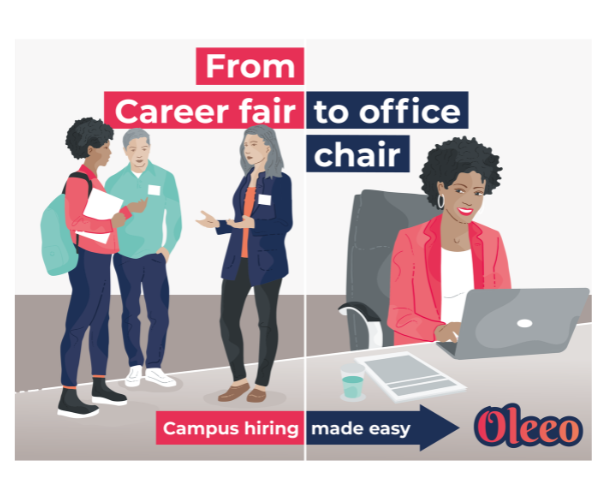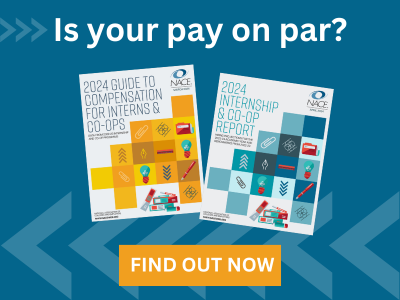In terms of their career interests and goals, members of Generation Z have an increased appetite for and awareness of entrepreneurship.
“There's evidence that they are more interested in, if not being an entrepreneur, having entrepreneurial skills, mindset, and approach to their careers,” says Melanie Buford, author, leadership educator, career coach, and lead editor of the new book, “Mapping the Future of Undergraduate Career Education.”
In addition, many of these students are interested in originality. Buford notes that studies have shown that Gen Zers are interested in original thought and contributing something original to the world, which, she notes, often looks like entrepreneurship.
“It’s often a combination of technology and the increasing cost of living and education that has driven them to have to have multiple streams of income and divide their time in different ways,” explains Buford, who cautions that generational research is akin to an educated guess.
“Already having that entrepreneurial mindset, it makes sense that they want to continue that in their work. That’s one piece. There's obviously a lot of emphasis on their skills with technology and social media. They have curated an identity online, so they may have a self that they identify as or with online. That has some implications for how they think about their career. It speaks to this idea that they can hold multiple priorities, multiple roles, and multiple selves at one time.”
Despite the evolution of career preferences chiefly spurred by advances in technology, in general, and social media, in particular, there are similarities among generations. Data show that Millennials held high expectations for their careers and wanted high pay, the ability to travel, and freedom, Buford says.
“This is consistent with Gen Z, which unsurprisingly seems to want all that too,” she says.
“But given Gen Z’s positionality and time, there's some indication that they're more aware of the challenges they face and that there's a lot of anxiety, depression, and concern about finances in the future. There is a dual presence of concern about the future and hope for the future, which generates in many uncertainty and anxiety.”
However, it also generates creative solutions. At the intersection of passion and self-branding is the personalization of work, which Buford notes, has not been fully studied.
“Still, we see a pattern of younger people connecting their work more closely to their values,” she says.
“Gen Z wants to know how they can uniquely contribute in their career and I think this leads them to seek forms of work that are authentic to who they are. There is a greater tendency to connect their identity to their work. The way that social media and technology have allowed them to curate their identity online and in these in workspaces has exacerbated that issue.”
For example, Buford explains that on Twitter, content creation is increasingly popular among Gen Z. However, there is disagreement around how personal users should be on Twitter.
“There are many people who have their identity tied to their work; this is particularly true for those in marginalized groups or who do work related to equity,” she says.
“Twitter may become fraught for them because people may attack their work, which, because of the intertwined nature of personalized work, makes it a personal attack. Technology and social media—through which Gen Z creates and shares websites, videos, blogs, and other personal content—are driving a lot of that.”
Although Gen Z is increasingly identifying with their work, doing so is a mindset more than it is a tangible process, Buford says.
“It's manifesting in many ways, such as when describing their job,” she explains.
“In previous generations, someone might say that they work in HR. Today, Gen Z might say that they are very passionate about helping people find great jobs. It is a different mindset, one that has moved from identifying with a company or with a line of work to identifying their own passion.”
To effectively assist them in their career pursuit, career centers are working with students on personal branding, website presence, and materials that feel authentic and reflect who they are so that there is a strong personal connection and sense of competence with their professional identity and work.
“Helping students build that is a key piece, so that they feel authentic,” Buford says.
Career centers are also integrating conversations and programming around burnout and well-being. This is important, Buford notes, because when work is personal, setbacks hit harder.
“Students need protection and an identity outside of work, so they don’t experience burnout,” she says.
“Not every student needs to feel authentic with their work, but it is a growing cultural shift.”
On the other side, we are currently in a job-seeker’s market, so recruiters are focused on and may be experiencing difficulty attracting and retaining talent.
“To connect with Gen Z students, it's not enough for a company to just say what it values; the company needs to back that up with examples and results,” Buford suggests.
“There is a great deal of emphasis currently on belonging, which speaks to the personal piece that employees want to feel like their whole self belongs at work. Recruiters can help Gen Z candidates feel as though they belong by showing curiosity about their values and interests, describing their potential to contribute original ideas, and asking to what extent they want to personalize their work. Then, to retain Gen Z employees, organizations need to listen to them and act on their feedback.”
These kinds of conversations could help Gen Z candidates make the connection between their career goals and interests and the culture and goals of their employer.
“This is the alignment many members of Gen Z are looking for in their careers,” Buford says.






